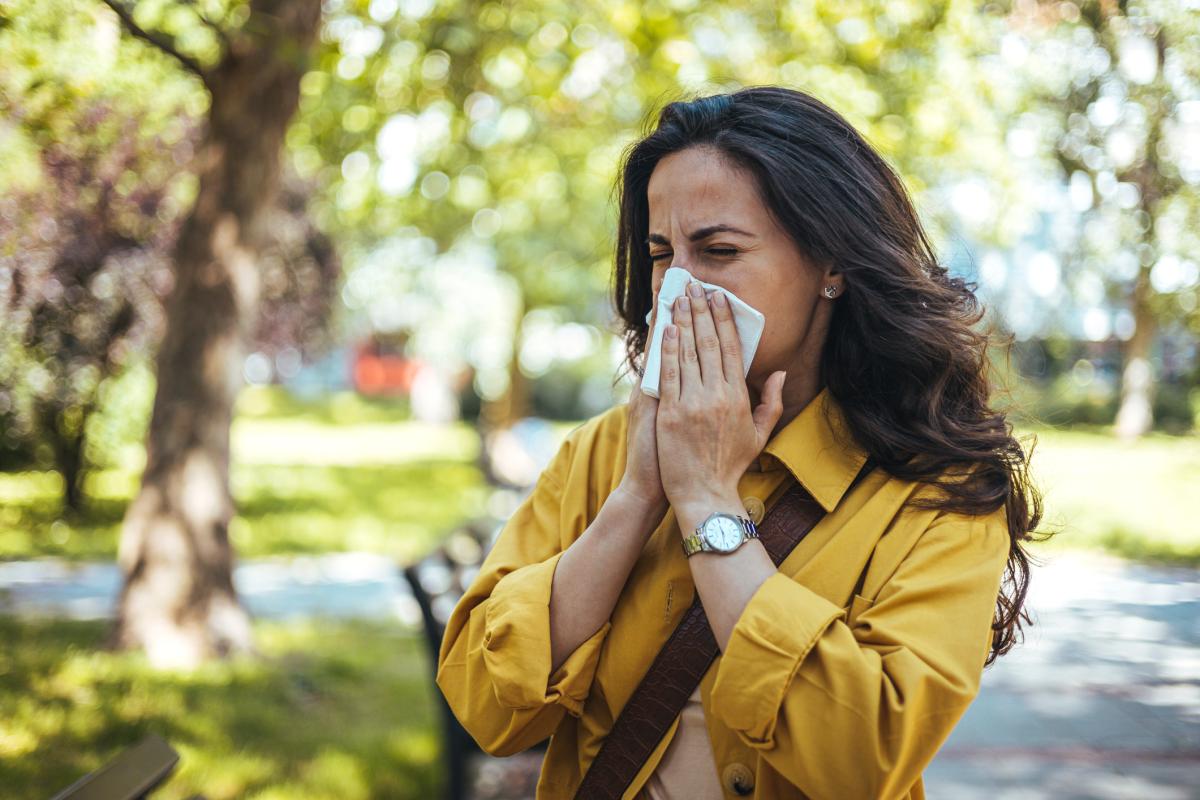How to avoid and minimize springtime allergies


If you have allergies, the coming of spring may bring mixed feelings. Around late March, allergy-causing plants and molds begin to proliferate in Nebraska and continue to wreak havoc on allergy sufferers through October. Thus begins the predictable and relentless symptoms of sneezing, itching, congestion and watery eyes that follow the arrival of spring.
Approximately one-third of the population has allergies. The numbers may be even higher in the Midwest due to the high prevalence of seasonal allergens such as ragweed, tree pollens and grasses. Perennial allergens such as dust mites, which prefer to live where there is 50 percent or more humidity, are also higher in the Midwest.
Take Control of Your Allergies
To schedule an appointment with one of our sinus specialists, please call 800.922.0000.
But allergies don’t have to put a crimp on your lifestyle. You can minimize symptoms by being proactive and taking some preventive strategies. “I recommend allergy sufferers begin over-the-counter allergy medications like antihistamines and topical nasal steroid sprays before the first thaw or about one to two weeks before the tree buds begin to blossom,” says Christie Barnes, MD, otolaryngologist at Nebraska Medicine. “The antihistamine will block the histamine receptor to help prevent significant sneezing and runny nose and nasal steroid sprays help to reduce swelling in your nose and the cascade of other allergy symptoms. Once you get behind, it’s harder to clear up symptoms and it may take up to several days or more to get symptoms under control.”
You can also practice these avoidance measures to minimize spring allergy symptoms:
- As the weather warms, keep windows closed to avoid letting pollen inside and run the air conditioner to circulate air. Tree pollens are especially hardy. Once they get inside your home, they can last for months
- Check the daily weather report for local pollen and mold counts. When counts are high, try to stay indoors or reduce outdoor activity. Pollen counts are usually highest on warm, dry, windy days and in the early morning
- Use nasal salt water rinses to rinse allergens from inside the lining of your nose
- Avoid yard work such as raking wet leaves, mowing the grass or handling gardening material like compost and mulch or rinse your nose after such activities. Stay away from construction sites, which are likely to have lots of blowing dirt and weed pollens. And remember, pollen can travel for miles; so reducing trees in your own yard is not practical
- Wash your skin, hair and clothing after being outside
- Bathe your cats and dogs more frequently, as they can also carry pollens on them, and avoid them sleeping in your bed or bedroom
- Use a dehumidifier in your basement during the humid season
- Talk to your doctor about getting a portable air filter or install an air filter device as part of your home’s central heating, ventilation or air conditioning system
- Pre-medicate if you are planning to be outside for a significant amount of time to minimize symptoms
Dr. Barnes says that a combination of oral antihistamines combined with nasal sprays produce the best results. When over-the-counter medications fail to work or your symptoms begin interfering with work, school or sleep, it’s time to see your physician.
“We can do some testing to see what allergens you are allergic to and offer treatments beyond over-the-counter meds such as additional pills and sprays, steroid shots, sublingual immunotherapy, or allergy shots,” says Dr. Barnes. Sublingual immunotherapy and tablets are forms of immunotherapy that can be administered at home. Immunotherapy works by desensitizing your body to your allergy triggers so that you will be less dependent on medications.




